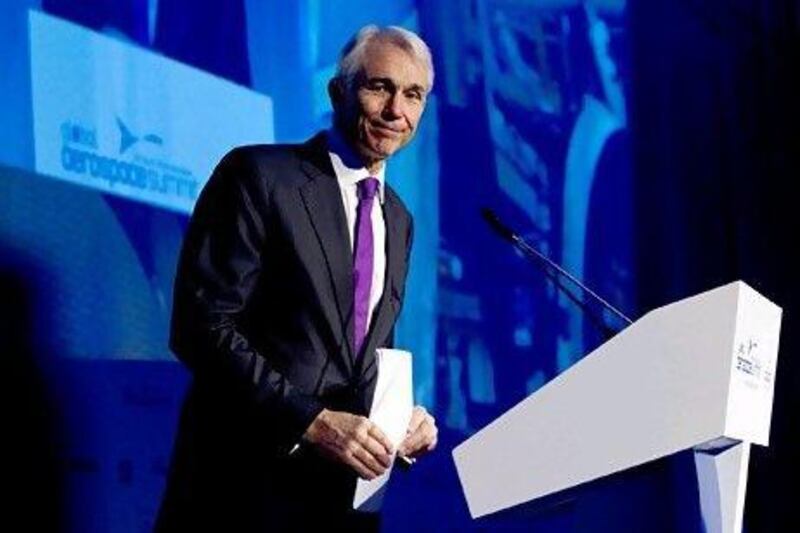If the global aviation industry was a country it would be in the top 20 when it comes to the wealthiest nations in the world, says Tony Tyler, the chief executive of the International Air Transport Association.
He knows, because he has read a study, commissioned by the Air Transport Action Group, the global industry-wide aviation lobby group and conducted by Oxford Economics, the leading economic forecasting consultancy, which released its findings last month.
Mr Tyler told the Global Aerospace Summit in Abu Dhabi yesterday that the document made interesting reading for those who wanted to know just what aviation contributed to the global economy. "If aviation were a country, it would rank 19th in terms of GDP," Mr Tyler said.
"They did the numbers and their study shows that aviation supports 56.6 million jobs around the globe, including 8.4 million direct jobs and US$2.2 trillion (Dh8.08tn) of economic activity, representing 3.5 per cent of global GDP."
And he added that the findings also demonstrated that aviation's importance as a catalyst for growth is well understood in the Middle East, particularly in the Gulf region.
"Here, where airports rise from the desert ahead of the demand curve, not behind it," said Mr Tyler, "governments work in partnership with industry through forward-looking policies that value aviation as a generator of wealth and jobs, not just as sheep to be sheared by the tax collector, as happens too often in other locales. "The Oxford [Economics] study shows that the Middle East represents 3 per cent of global passengers, has 5 per cent of the total jobs and 6 per cent of the GDP generated by air transport.
In terms of actual numbers, Oxford Economic's study reveals that within the region, air transport supports 2.7 million jobs, and $129bn in GDP.
"Furthermore, aviation's role in the region is set to grow rapidly over the next two decades as international passenger numbers through the Middle East rise from 77.1 million in 2010 to 220.4 million in 2030."
That was why Dubai International Airport was the world's 13th busiest airport by passengers last year, with nearly 51 million passengers, while the actual population of Dubai is just under 2 million.
twitter: Follow and share our breaking business news. Follow us





